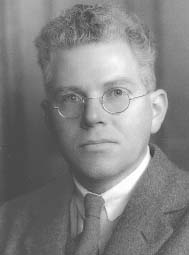Fonte: Portraits in Science interviews (1994), p. 34
Contexto: I've lost any belief I ever had in scientific policy. I don't think you can have scientific policy. I think science is something like weeds, it just grows of its own accord … and if you've got the right atmosphere, the right situation within universities or within places like CSIRO, then it grows and develops of its own accord. And I believe that science is best left to scientists, that you cannot have managers or directors of science, it's got to be carried out and done by people with ideas, people with concepts, people who feel in their bones that they want to go ahead and develop this, that, or the other concept which occurs to them.
Marcus Oliphant: Frases em inglês
On potentials for misuse of nuclear power, p. 31
Portraits in Science interviews (1994)
Contexto: I, who had been in favour of nuclear energy for generating electricity … I suddenly realised that anybody who has a nuclear reactor can extract the plutonium from the reactor and make nuclear weapons, so that a country which has a nuclear reactor can, at any moment that it wants to, become a nuclear weapons power. And I, right from the beginning, have been terribly worried by the existence of nuclear weapons and very much against their use.
On his research on atomic nuclei with Ernest Rutherford, p. 24
Portraits in Science interviews (1994)
Contexto: We were able to discover two new kinds of atomic species, one was hydrogen of mass 3, unknown until that time, and the other helium of mass 3, also unknown. … We were able to show that heavy hydrogen nuclei, that is to say the cores of heavy hydrogen atoms, could be made to react with one another to produce a good deal of energy and new kinds of atom. …Of course, we had no idea whatever that this would one day be applied to make hydrogen bombs. Our curiosity was just curiosity about the structure of the nucleus of the atom, and the discovery of these reactions was purely, as the Americans would put it, coincidental.
On efforts to avoid civilian deaths in the first uses of atomic weapons, p. 32
Portraits in Science interviews (1994)
Contexto: I was a member of a group that was led by Niels Bohr, after the test in Alamogordo, that was very much opposed to the use of this new weapon on civilian cities. … But by and large we were in a minority, but a rather distinguished minority. But the trouble was that this second memorandum to Roosevelt went off to him, but he never read it, he died before he read it. And Truman, of course, was a different kettle of fish.
On his research on atomic nuclei with Ernest Rutherford, p. 24
Portraits in Science interviews (1994)
Contexto: We were able to discover two new kinds of atomic species, one was hydrogen of mass 3, unknown until that time, and the other helium of mass 3, also unknown. … We were able to show that heavy hydrogen nuclei, that is to say the cores of heavy hydrogen atoms, could be made to react with one another to produce a good deal of energy and new kinds of atom. …Of course, we had no idea whatever that this would one day be applied to make hydrogen bombs. Our curiosity was just curiosity about the structure of the nucleus of the atom, and the discovery of these reactions was purely, as the Americans would put it, coincidental.
Fonte: Portraits in Science interviews (1994), p. 34
Contexto: I've lost any belief I ever had in scientific policy. I don't think you can have scientific policy. I think science is something like weeds, it just grows of its own accord … and if you've got the right atmosphere, the right situation within universities or within places like CSIRO, then it grows and develops of its own accord. And I believe that science is best left to scientists, that you cannot have managers or directors of science, it's got to be carried out and done by people with ideas, people with concepts, people who feel in their bones that they want to go ahead and develop this, that, or the other concept which occurs to them.
